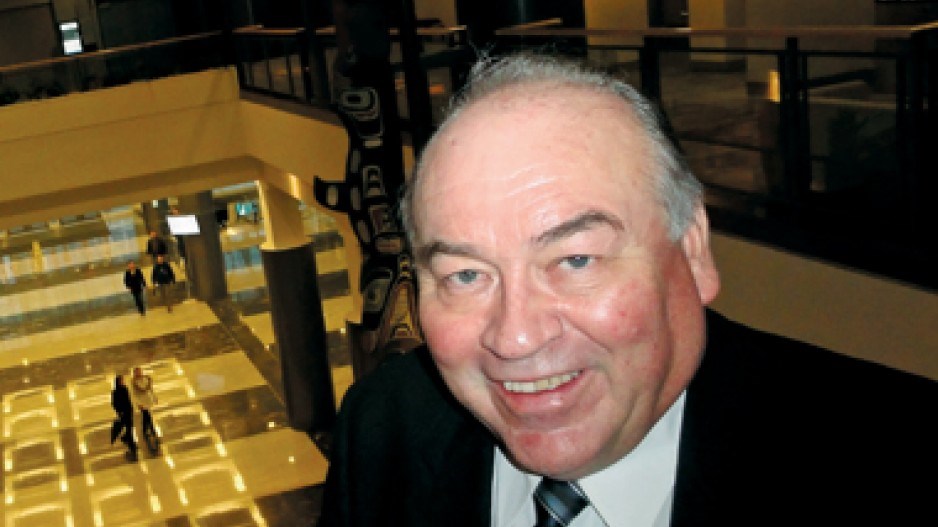Northwest Territories (NWT) premier Bob McLeod was in Vancouver last week for the annual Association for Mineral Exploration BC (AMEBC) Mining Exploration Roundup, unveiling of a new NWT mineral strategy and a meeting with B.C. premier Christy Clark.
McLeod, NWT’s 12th premier, governs the resource-rich territory, which is negotiating a devolution agreement that will shift control over land and resources from Ottawa to Yellowknife.
Last fall, NWT opened the $202 million Deh Cho Bridge over the Mackenzie River at Fort Providence. The Mackenzie River is also part of the route for a decades-delayed, $16 billion natural gas pipeline. ConocoPhillips (NYE:COP), Shell (NYE:RDS), ExxonMobil (NYE:XOM) and the Aboriginal Pipeline Group are still hoping to build the megaproject but the boom in shale gas extraction elsewhere in North America has flooded the market and lowered natural gas prices.
McLeod is a booster of the Enbridge Northern Gateway pipeline, but also hopes NWT natural gas might someday flow to ports on B.C.’s coast for export to Asia.
He spoke to Business in Vancouver about his hopes and plans.
Q: Market forces are always a challenge for a project that big.
A: The Mackenzie pipeline has been approved, it’s ready to go, but the market conditions have changed and certainly the U.S. market has changed. The U.S. will be, from all accounts, abundance or surplus of natural gas; [it’s] going to be self-sufficient in oil in the near future. We’re still optimistic. We have some deadlines coming up in 2013 and 2015 for the Mackenzie pipeline. More than likely you’ll see if the price for natural gas doesn’t change, probably we’ll see a request for an extension of dates.
Q: There has been a lot of controversy in B.C. on the importation of Chinese coal miners. That might be one pool of labour that NWT might need for the pipeline.
A: We have problems with getting labour as well. Obviously, we’re trying to work very hard to have a homegrown workforce. That takes time. We have too many jobs and not enough people, so we have to look outside the territory, and a lot of competition from the provinces and territories. We haven’t reached that point yet, although we do go outside Canada; we go to China and India for diamond cutters and polishers. We’re already there; for trades and underground miners we haven’t gone there yet.
Q: What are your thoughts on the Idle No More movement?
A: Fifty per cent of our population is aboriginal. We have a very good relationship with our aboriginal governments ... we are very close to having a majority of the land claims settled in the NWT except for a couple. The younger aboriginal people, they haven’t been confrontational. Their main focus has been educational. The composition of the Canadian population is changing. At one time a majority of the Canadian population was European based. Now we’re starting to see it becoming more and more [of an] Asian population, and they don’t have the same understanding or interaction with aboriginal treaties.
Q: Is there any advice you can leave Premier Clark?
A: We’re in a different situation, we have treaties 8 and 11, we have land claims and self-government agreements. Our aboriginal governments are our partners. We work with them on that basis. The Mackenzie pipeline, when it goes ahead, there are provisions that our aboriginal partners will own one-third of the pipeline. •




